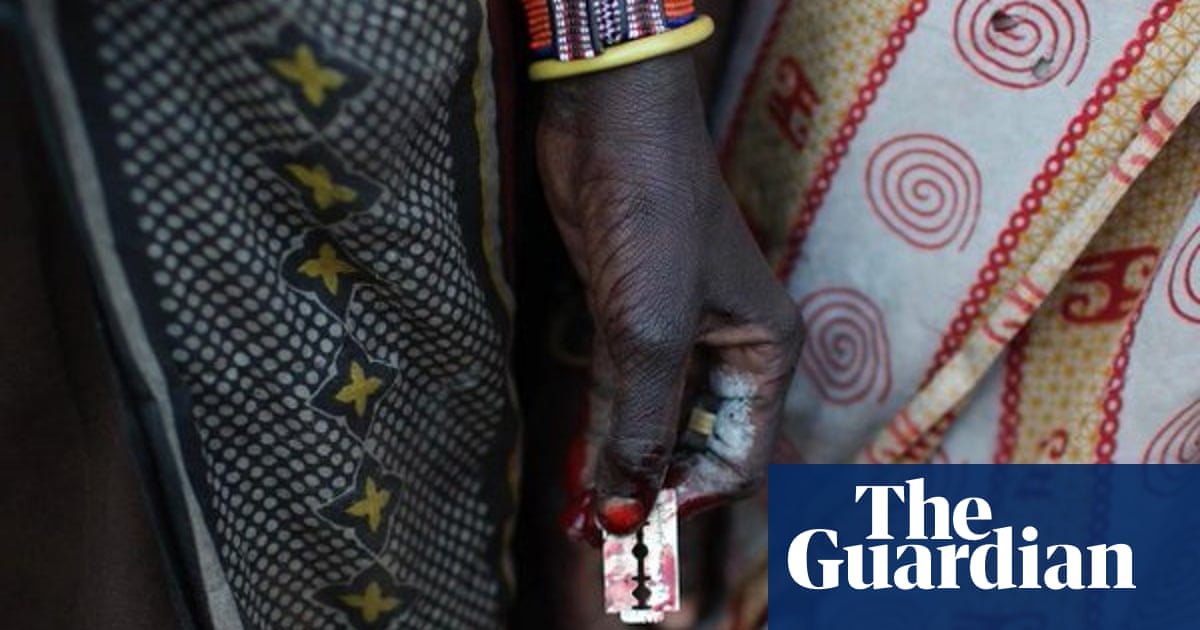
Efforts to eliminate female genital mutilation in Kenya have faced a setback following the death of a police officer during a clash with a group of young individuals.
The killing was denounced by activists and community leaders, who viewed it as a setback in the battle against the practice’s elimination in the nation. In Elgeyo Marakwet county, located in the Rift Valley region, authorities had transported a group of girls who had been coerced into undergoing the unlawful procedure to a hospital. However, a group of young men attacked a police station and fatally attacked Cpl Mushote Boma.
The government-owned Kenya news agency reported that a group of enraged young people attacked a police station in order to retrieve the girls who had been saved by the police after undergoing genital mutilation. They overpowered the officer on duty and killed him by stoning him to death, then burned his body with a mattress.
Six girls are currently recovering at a nearby hospital, as reported by Peter Mulinge, the county police commander.
The act of female genital mutilation, also known as “the cut”, is prohibited in Kenya. However, it is still being performed in certain areas, typically during school breaks, using primitive techniques and instruments by women. While there have been instances of activists being targeted by those performing FGM, attacks on law enforcement officials are uncommon.
“It is alarming and discouraging that even in the 21st century, we are witnessing the death of a police officer while trying to save girls from undergoing inhumane practices,” stated Tony Mwebia, the founder and executive director of Men End FGM Foundation, a non-profit organization dedicated to mobilizing men and boys against FGM and child marriages. “Were the individuals responsible for the officer’s death aware of the consequences of protecting such regressive cultural norms? Do they truly understand the harm caused by these harmful practices?”
Mwebia, from an organization that has trained about 500 male advocates in areas where FGM is practiced, explains that men react with discomfort when they are shown footage of the procedure, which they traditionally view as being done for their benefit.
According to Mwebia, individuals are instructed that undergoing female circumcision will make them appear more mature and prevent them from engaging in promiscuous behavior. They are also warned that marrying an uncircumcised woman will result in losing respect within their community. This is why they are willing to harm anyone, even law enforcement, who tries to stop the practice.
In December 2016, Mwebia and a colleague were suspected of filming a street parade of girls undergoing a traditional ritual in Kuria. As a result, they were attacked by another group of men.
A confidential administrator, who wished to remain unidentified due to potential backlash, stated that the assault on law enforcement officials will give confidence to those committing the act, as they will view the government as vulnerable and incapable of defending itself.
“I am concerned about the idea of murdering a police officer in the pursuit of FGM,” he stated. “While we are aware that FGM is against the law in Kenya, simply enforcing the law without properly educating the public on the harmful effects of this practice will not be effective. It is crucial to engage in open and meaningful discussions with community members if we want to stop the prevalence of FGM in the region.”
Per The Nation newspaper, the police rescued approximately 70 girls. Viola Cherono, a human rights activist in the area, claimed that up to 500 girls were gathering in the forest to partake in the ritual.
She informed the paper that girls in the Endo and Embobut wards are being subjected to cutting on a daily basis. The inhabitants of Embobut are known for their aggressive behavior, and anyone who speaks out against it or is a member of the police force risks being targeted.
According to Bernadette Loloju, the CEO of the Anti-FGM Board in Kenya, the recent killing was an unimaginable and isolated occurrence that should not be seen as a reflection of the progress in combating the practice of FGM.
Loloju stated that instances of FGM have decreased in communities where the practice was previously prevalent, largely due to girls speaking up and refusing to undergo the procedure. Despite women typically being responsible for carrying out the cut, efforts are still made to involve the elders who hold cultural authority. These men are often surprised and disturbed when shown videos of the actual procedure.
According to Mwebia, the battle against FGM can only be successful if we do not squander resources on conferences, but instead alter our methods.
The country’s top leaders have shown political willingness. The lack of involvement from men will be the primary obstacle.
Source: theguardian.com
















